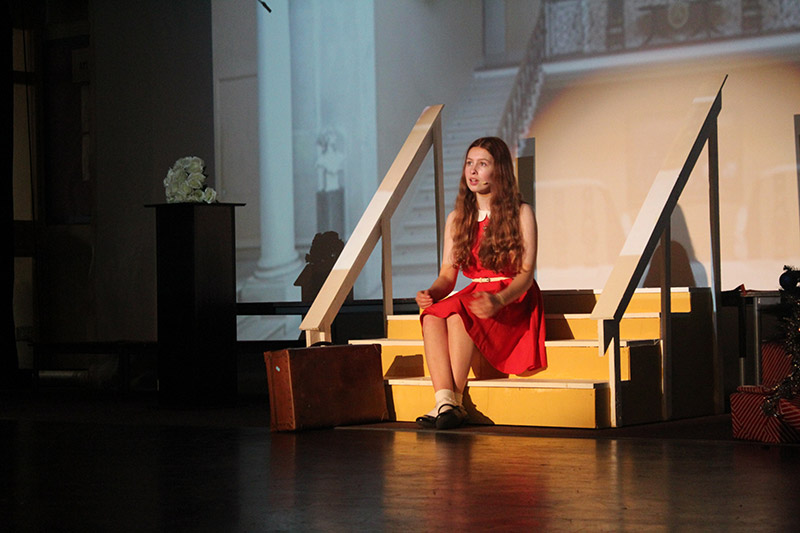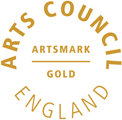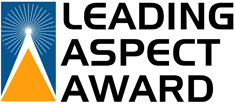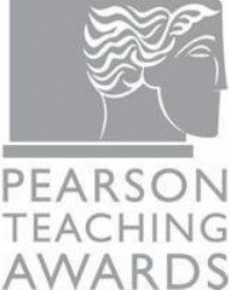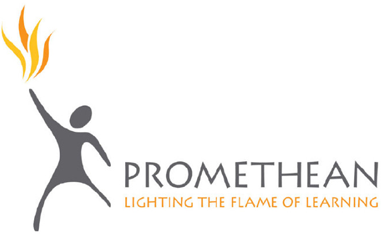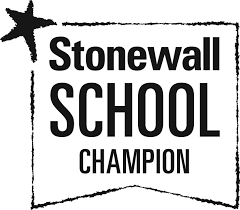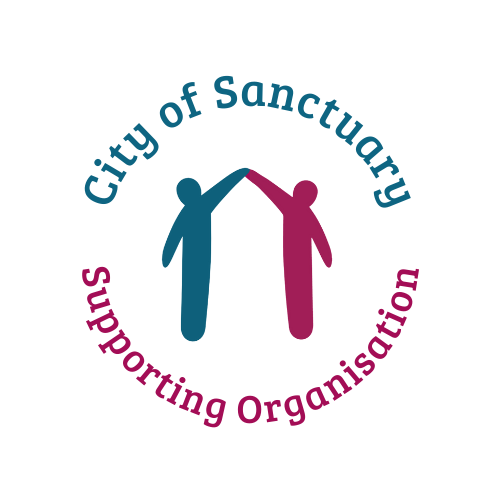Drama:
Subject Information Overview
Below is a visual overview of the content available on this page. Click the appropriate title to view the relevant section
Curriculum
Area Staff Curriculum
InformationCurriculum
OverviewExam information for GCSE
qualifications in this Subject AreaKnowledge
Organisers
Curriculum Area Staff
|
Lorna Boole |
|
Should you require more information about this subject area please contact:
Name: Mrs L Farrell
Position: Dance Leader, Director of Performing Arts
Email: lh@selbyhigh.co.uk
Curriculum Information
The drama curriculum has been designed to allow students opportunities to develop their subject knowledge, creative and performance skills through utilising a range of stimuli and professional works. Students will be constantly challenged to think outside of the box in the devising process and be open to different opportunities to work in a range of contexts. Students will be exposed to a spectrum of professional theatre companies to broaden their horizons and to appreciate work from different backgrounds and performance styles. The main purpose of drama is to be able to challenge our learners to become more creative, insightful and resilient individuals; lessons will provide a challenging and thought-provoking environment for students to be expressive, dynamic and confident performers.
In Year 7 students will learn the core skills of how to devise drama using the concepts of narration, thought-tracking, still images, physical theatre and characterisation. They will also learn how to develop their performance skills such as projection, focus, proxemics, use of voice, gait and body language, adapting these to different contexts in front of an audience. Students will study a range of topics such as science fiction, script text, musical theatre and Kneehigh. They will continuously develop and revisit these skills throughout key stage three moving onto more challenging skills such as soundscaping, mime, puppeteering and use of props progressing through topics such as commedia dell’arte, theatre of the absurd, Forum theatre and silent movies within year 8. As the course progresses, in year 9 students will study key practitioners within the performing arts industry, analyse challenging script texts, understand the role of drama within musical theatre and learn how to devise their own pieces of theatre utilising key conventions and skills learned across the key stage. If students wish to opt to study drama at Key Stage four, the BTEC Performing Arts course allows them to embrace and analyse a range of performance works, understanding the roles and responsibilities involved in creating a piece for the stage and practically exploring the creative process. Students will experience what it takes to be a professional performer bringing to life a script text and create their own performance work from a given stimulus from the exam board.
Drama is a truly student-centred subject which places teaching and learning at its heart; it has the highest expectations of all students; celebrates the unique talents of all its students; listens to students’ views; ensures students are safe and secure and has an atmosphere of mutual support and respect.
We are committed to developing maturity, independent learning, creative thinking, co-operation and understanding of citizenship through practical performance and discussion. The drama curriculum aims to be fully inclusive and develop practical performance skills and awareness of genre, culture, and convention.
The skills developed through the study of drama prepare students for the world of work focusing on those areas deemed most important by the business community: confidence; teamwork; responsibility; communication; creative thinking; working to deadlines; problem solving; evaluation; co-operation; focus; and emotional maturity. An understanding and ability to use these skills complements all other areas of school life and student’s studies.
Curriculum Overview
Below is a summary overview of the topics and their content that will be studied in each term by each year group. For more information about each topic, get your child to visit learning journeys and resources on the school online learning platform - Ready Steady Learn.
| Year Group | Term 1 | Term 2 | Term 3 |
| 7 |
Autumn term 1: Science Fiction-discovering drama through explorative strategies.
Autumn term 2: Mechanical Minds.
(Group devising skills, interpreting a stimulus, knowledge of explorative strategies and techniques, still images, physical theatre, thought-tracking, narration, soundscaping, physical theatre, surrealism, aspects of debate and use of verbal skills). |
Spring term 1 and 2: Exploring texts and scripts. Texts will be continuously varied and updated to cover the elements of rehearsing and preparing for a performance, conveying meaning in performance, character building and understanding how performance texts are constructed.
(Rehearsal techniques, learning lines, character analysis, stereotypes, plot, subtext, blocking, stage directions, character motivation, context, relationships and development, proxemics). |
Summer term 1 and 2: An introduction to practitioners- Kneehigh Theatre.
(Practitioner/stylistic knowledge, knowledge of explorative strategies and techniques, conveying meaning in performance, staging styles and communicating meaning through design, reflecting on the creative process, use of props and puppetry, use of gesture, comedy, characterisation, physical theatre, direct address). |
| Assessment details |
Students will undertake a half termly assessment and a formal termly assessment to review their knowledge, skills and overall progress. Students will be assessed against the three strands of the performing arts: create, perform and respond. |
Students will undertake a half termly assessment and a formal termly assessment to review their knowledge, skills and overall progress. Students will be assessed against the three strands of the performing arts: create, perform and respond. |
Students will undertake a half termly assessment and a formal termly assessment to review their knowledge, skills and overall progress. Students will be assessed against the three strands of the performing arts: create, perform and respond. |
| 8 |
Autumn term 1: Commedia dell’Arte-exploring drama styles and genres, building upon practitioner/stylistic knowledge and character building.
Autumn term 2: Theatre of the Absurd.
(Stock characters, characterisation, gait, comedy, hot-seating, exaggeration, thought-tracking, aside, direct address, improvisation). |
Spring term 1: Forum theatre and internet safety.
Spring term 2: Kneehigh Theatre.
(Political theatre, practitioner influences, building upon practitioner/stylistic knowledge, analysing and evaluating the work of others, knowledge of explorative strategies and techniques, conveying meaning in performance, staging styles and communicating meaning through design). |
Summer term 1 and 2: Silent Movies.
(Practitioner/stylistic knowledge, group devising skills, interpreting a stimulus, character building, reflecting on the creative process, stock characters, mime, narration, use of placards, comedy, exaggeration).
|
| Assessment details |
Students will undertake a half termly assessment and a formal termly assessment to review their knowledge, skills and overall progress. Students will be assessed against the three strands of the performing arts: create, perform and respond. |
Students will undertake a half termly assessment and a formal termly assessment to review their knowledge, skills and overall progress. Students will be assessed against the three strands of the performing arts: create, perform and respond. |
Students will undertake a half termly assessment and a formal termly assessment to review their knowledge, skills and overall progress. Students will be assessed against the three strands of the performing arts: create, perform and respond. |
| 9 |
Within Year 9 Performing Arts, students will gain experience of the skills and knowledge required for the BTEC courses at KS4. In term 1 students will learn about different styles and genres of music, drama and dance and create performance work inspired by different stimuli linked to Component 1. Students will create a performance for assessment inspired by the script text ‘Zero for the Young Dudes’. |
Students will learn about different roles and their responsibilities that exist within the world of performing arts in the development of a performance piece such as the set, costume, choreographer, lighting and sound designers. Students will study and analyse the key features of musical theatre and create their own performance work based on repertoire and key themes of a given musical theatre piece. Students will have the responsibility to decide on which key role they play within the creation of their piece and must contribute effectively to its development in readiness for their final assessed performance, which will be inspired by the musical Hamilton. |
Students will be given a creative assignment brief linked to the BTEC Tech Award Component 3. They will be challenged to develop their own creative ideas working successfully together in groups. Students will need to devise their own performance pieces and justify their given choices to ensure that they are clear on the intention of their work. Students will present their ideas and perform their work to a selected audience for assessment. |
| Assessment details |
Students will undertake a termly assessment to review their knowledge, skills and overall progress. Students will be assessed against the three strands of the performing arts: create, perform and respond. |
Students will undertake a termly assessment to review their knowledge, skills and overall progress. Students will be assessed against the three strands of the performing arts: create, perform and respond. |
Students will undertake a termly assessment to review their knowledge, skills and overall progress. Students will be assessed against the three strands of the performing arts: create, perform and respond. |
| 10 |
GCSE DRAMA (OCR) |
||
|
Blood Brothers Practical and written application of performance and design skills, whilst exploring the social, historical, cultural & political elements of the play, the directors intentions and demands of the play,alongside key themes and the characteristics of the performance in preparation for Component 2 in Y11.
|
Teechers Practical and written application of performance and design skills, whilst exploring the social, historical, cultural & political elements of the play, the directors intentions and demands of the play, alongside key themes and the characteristics of the performance in preparation for Component 1 in Y11.
|
Live Theatre review practise Watch professional theatre production and critique.
Component 1 Devising Theatre: Introduction to official exam stimuli Introduction to exam stimuli Recap skills developed in year 9 (and prior) Research and research application Collaborative, independent decision making, problem solving, creative ideas development, crafting engaging theatre.
|
|
| Assessment details |
Mock exam: written paper. |
Component 2 practice assessment: One- Two performed extracts & concept proforma. |
Practise written paper answers. |
| 10 |
BTEC PERFORMING ARTS |
||
|
Autumn term 1 and 2: BTEC Performing Arts and Dance Component 1-Exploring the Performing Arts. |
Spring term 1 and 2: Students will complete their Component 1 assessment from January until May in the first year of the qualification. |
Summer term 1 and 2: Preparation for Component 2-Developing Skills and Techniques in the Performing Arts. |
|
| Assessment details |
BTEC Performing Arts and Dance preparation for the Component 1 internal assessment which is handed out in December. |
BTEC Performing Arts and Dance Component 1 internal assessment worth 30% of the students overall grade. |
|
| 11 |
GCSE DRAMA (OCR) |
||
|
Component 1: Devising Theatre Preparation and performance of devised pieces as part of controlled assessment Recap & Review Live Theatre show Blood Brothers recap.
|
Component 2: Performing from a Text Teechers recap & rehearsals of selected 2x script extracts Externally assessed component
|
Component 3: Interpreting Theatre Revision for written exam paper: ‘Blood Brothers’ Live theatre review |
|
| Assessment details |
Component 1 Internal assessment (posted to OCR moderator): Performance 20 marks Written Portfolio 40 marks
Mock exam II: written paper |
Component 2 external exam assessment (performances watched by visiting OCR examiner): Performance 40 marks Concept proforma (written) 20 marks |
Examination: Written paper 80 marks Section A: Blood brothers (50 marks) Section B: Live theatre review (30 marks) |
| 11 |
BTEC PERFORMING ARTS |
||
|
Continue preparation for Component 2, with a view to completing the assessment from September to December. Students will also be completing a mock of Component 3 which is the external devised unit. |
BTEC will release the Component 3-Responding to an External Brief in January of the final year of the qualification. Students will have 12 weeks to prepare, research and complete this externally marked assessment. |
||
| Assessment details |
Component 2 internal assessment from September-December. |
40% External assessment will take place throughout the period of January to May. Students will have three written tasks and a practical task completed in examination conditions. All work completed will be submitted to the exam board for marking. |
Students will have finished the qualification by May of their final year. Their final qualification grade will be calculated by Pearson and released in August. |
KNOWLEDGE ORGANISERS
A Knowledge Rich Curriculum at Selby High School
Research around memory suggests that if knowledge is studied once and not revisited or revised, it is not stored in the long-term memory. This means that after one lesson, or revising for one test, the knowledge will not be retained unless it is studied again. It won’t be recalled unless it is revisited frequently, which will embed it in the long term memory. In the long term this makes recall far easier. As part of home learning, students should be revising what they have been taught recently but also content they were taught previously. Therefore as part of our strategy to embed learning over time we have started to develop knowledge organisers across all year groups and curriculum areas. These will provide key content and knowledge allowing students to pre-learn and re-learn, a vital part of processing all the information required to be successful in the new style GCSE’s.
Instructions for using your knowledge organisers
KS3 = Years 7, 8 & 9
KS4 = Years 10 & 11
Below are the knowledge organisers for each topic in this subject. These knowledge organisers will become embedded in the Learning Journeys for each topic as they are created on Ready Steady Learn.
Exam information for GSCE qualifications in this subject area
Click each link below to view the full specification:
BTEC Tech Award in Performing Arts (Current Year 10s)
- Component 1-Exploring the Performing Arts 30%
- Component 2-Developing Skills and Techniques in the Performing Arts 30%
- Component 3-Responding to a Brief 40%
GCSE OCR Drama-Current Year 11s
- 01/02-Devising Drama 30%
- 03 Presenting and Performing Texts 30%
- 04 Drama Performance and Response 40%


